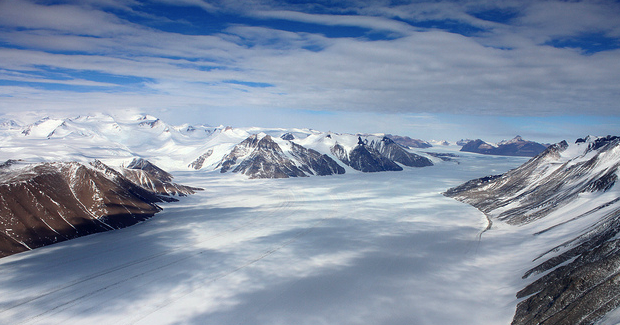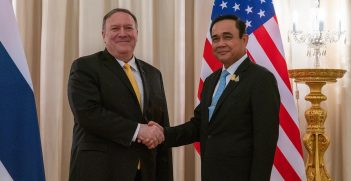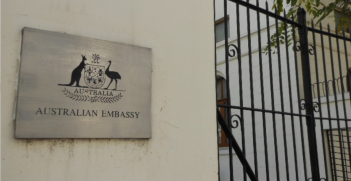Antarctica: The Madrid Protocol 25 Years On

On 4 October 1991, the Parties to the Antarctic Treaty met in Spain to sign the ‘Protocol on Environmental Protection to the Antarctic Treaty’. The Madrid Protocol, as it’s commonly known, put in place an indefinite ban on mining in Antarctica. The treaty came into effect in 1998.
The negotiation of the Madrid Protocol was a major international diplomatic achievement. Only two years earlier, Australia and France had shocked the other members of the Antarctic Treaty by walking away from ratifying the Convention on the Regulation of Antarctic Mineral Resource Activities. Led by prime ministers Bob Hawke and Michel Rocard, Australia and France torpedoed years of careful international negotiation aimed at establishing a pre-emptive regime to manage future mining activities in Antarctica.
In the face of domestic and international pressure to ban mining in Antarctica (including political pressure from the then Leader of the Opposition, John Howard), Hawke went against the advice of officials. Together, France and Australia set about convincing the Antarctic Treaty Parties to negotiate a comprehensive environmental regime for the Antarctic—one that would ban mining indefinitely.
The Madrid Protocol designates Antarctica as a “natural reserve, devoted to peace and science”. Under the Protocol, all activities must be subject to prior environmental assessment, and annexes to the protocol elaborate key elements of the environmental regime for Antarctica.
There’s often speculation in the media and academic circles about the strength of the ban on mining in the Madrid Protocol. This speculation is often expressed as “the ban on mining expires in 2048“. In 2014 the Australian government released a detailed account of what would be needed to overturn the ban on mining, but in short, such a move would be difficult. It would require the unanimous agreement of all the countries that signed the Madrid Protocol in 1991—either that, or the complete unravelling of the Antarctic Treaty System.
While the obstacles to overturning the ban on Antarctic mining may be considerable, in recent years some Antarctic Treaty Parties (including Russia, China and Belarus) have made public statements regarding their ‘future’ interest in Antarctic resources. These statements shouldn’t go unchallenged, and Australia should be vigilant to attempts to undermine the Madrid Protocol.
On the other hand, it’s significant that at this year’s annual meeting of the Antarctic Treaty in Santiago, Chile, the Parties reaffirmed their commitment to the Protocol, including its mining prohibition. Decisions of Antarctic Treaty meetings are made by consensus—meaning that the Santiago Declaration on the Twenty Fifth Anniversary of the signing of the Protocol on Environmental Protection to the Antarctic Treaty was adopted without objection.
The Antarctic, or its Antarctic Treaty System, isn’t free from threats, as detailed in the ASPI report Cold calculations: Australia’s Antarctic challenges. Climate change is the greatest direct threat to the Antarctic, but other pressures mustn’t be ignored. Humans, for example, are a major potential vector for introduced organisms and disease to enter the Antarctic; increased activities in the small ice-free areas of Antarctica have the potential for environmental damage unless carefully managed; and fisheries in the Antarctic require active and precautionary management. And the maintenance of the ban on mineral exploitation in the Antarctic is a long-term investment that requires vigilance and assertive diplomacy.
Australia has recently committed to a 20-year strategy and action plan for its Antarctic engagement. If fully funded and implemented, this plan should ensure that Australia maintains a strong leadership role in the Antarctic Treaty System.
Perhaps the biggest threat to the Antarctic Treaty System is drift in its underlying norms. A region proximal to Australia and devoted to ‘peace and science’ is a major strategic asset. We don’t have to fight wars there, and the current norms encourage cooperation and collaboration among all countries with an interest in the region.
Competition for ‘on ground’ status; pressure to gain access to more or new marine living resources; failure to address comprehensive environmental commitments such as representative marine protected areas, or a comprehensive regime for liability for damage to the environment, could provide the grounds for erosion of the current norms of the Antarctic Treaty System.
It’s in Australia’s national interest to maintain an active and viable Antarctic presence and an unwavering commitment to the strength and stability of the Antarctic Treaty System—and its ban on mining.
Dr Tony Press is an Adjunct Professor at the Antarctic Climate and Ecosystems Cooperative Research Centre. He was its CEO from 2009 to 2014. From 1998-2008 he was the Director of the Australian Antarctic Division.
This article was originally published on The Strategist on 4 October and is republished with permission.





